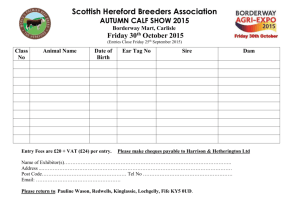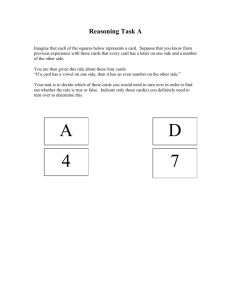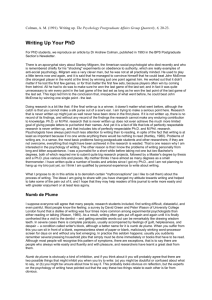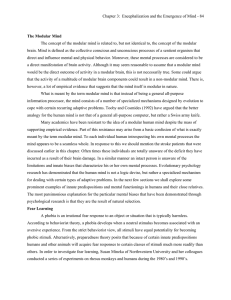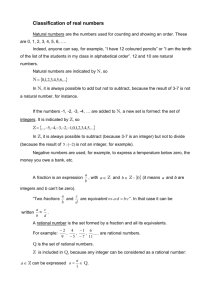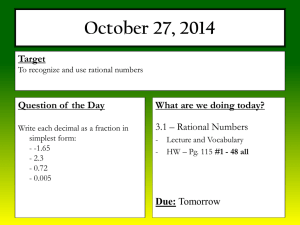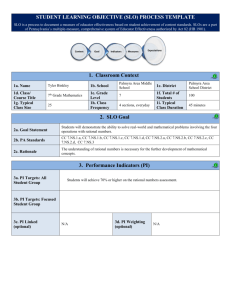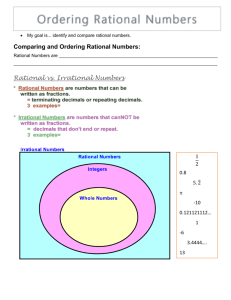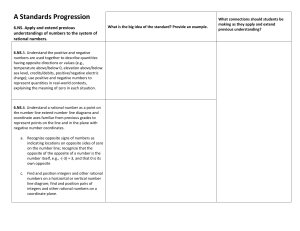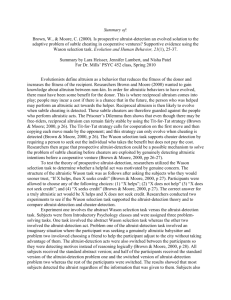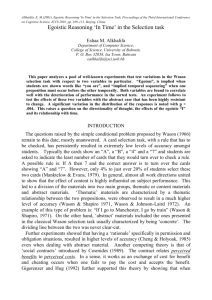Handout: Questions on Readings (doc file)
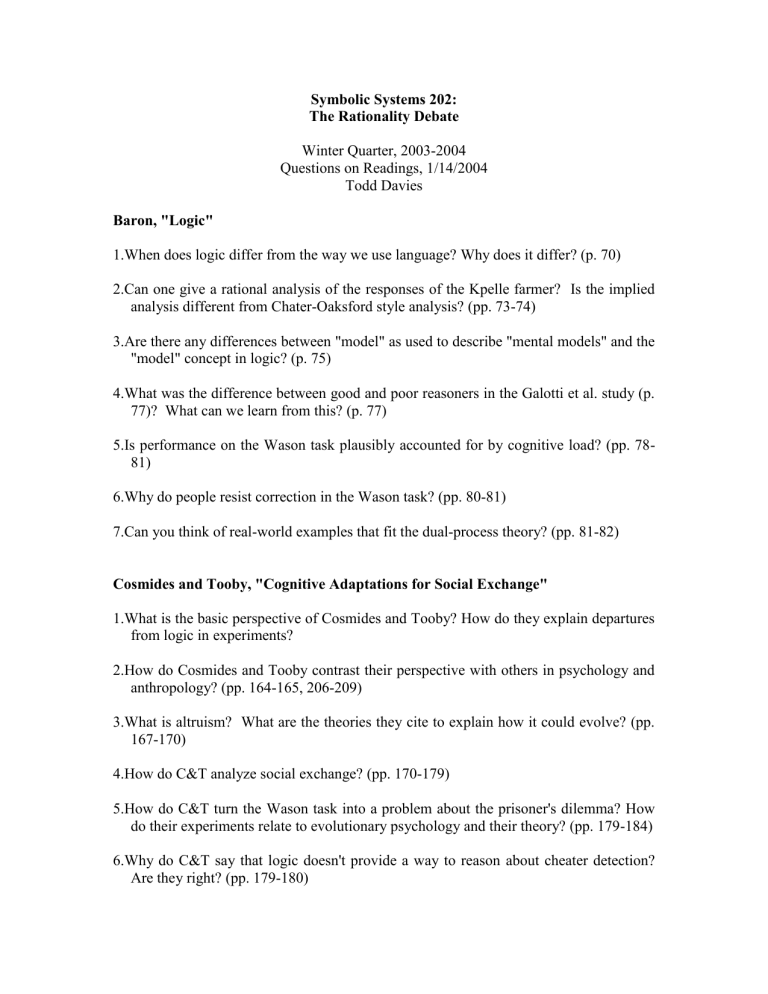
Symbolic Systems 202:
The Rationality Debate
Winter Quarter, 2003-2004
Questions on Readings, 1/14/2004
Todd Davies
Baron, "Logic"
1.When does logic differ from the way we use language? Why does it differ? (p. 70)
2.Can one give a rational analysis of the responses of the Kpelle farmer? Is the implied analysis different from Chater-Oaksford style analysis? (pp. 73-74)
3.Are there any differences between "model" as used to describe "mental models" and the
"model" concept in logic? (p. 75)
4.What was the difference between good and poor reasoners in the Galotti et al. study (p.
77)? What can we learn from this? (p. 77)
5.Is performance on the Wason task plausibly accounted for by cognitive load? (pp. 78-
81)
6.Why do people resist correction in the Wason task? (pp. 80-81)
7.Can you think of real-world examples that fit the dual-process theory? (pp. 81-82)
Cosmides and Tooby, "Cognitive Adaptations for Social Exchange"
1.What is the basic perspective of Cosmides and Tooby? How do they explain departures from logic in experiments?
2.How do Cosmides and Tooby contrast their perspective with others in psychology and anthropology? (pp. 164-165, 206-209)
3.What is altruism? What are the theories they cite to explain how it could evolve? (pp.
167-170)
4.How do C&T analyze social exchange? (pp. 170-179)
5.How do C&T turn the Wason task into a problem about the prisoner's dilemma? How do their experiments relate to evolutionary psychology and their theory? (pp. 179-184)
6.Why do C&T say that logic doesn't provide a way to reason about cheater detection?
Are they right? (pp. 179-180)
7.Are all the data we have seen about the Wason task consistent with C&T's claim that performance differences on Wason tasks are primarily due to the presence of cheating detection as a task? (p. 183)
8.What alternative explanations exist to explain content effects in the Wason task? How do C&T test alternatives to their theory? (pp. 184-206)
9.(9) Does C&T's theoy make testable predictions for neuroscience? (p. 193)
10.Is C&T's theory biologically plausible?
11.What is C&T's view of the relation between evolution and culture? (pp. 206-220)
12.Do C&T think people are generally rational?
Chater and Oaksford, "Ten Years of the Rational Analysis of Cognition"
1.What is a computational theory, and how do C&T and C&O construct one?
2.What is "rational analysis"? (pp. 46-50)
3.How does "rational analysis" differ from evolutionary psychology, according to C&O?
(p. 47)
4.How did Anderson develop a rational analysis of memory? ( pp. 48-50)
5.What is C&O's analysis of the Wason task? (pp. 50-52)
6.(6) Is the rational analysis approach scientific? How does it differ from a "just so" story?
7.(7) Does the optimal data selection model fit all the results we've seen for the Wason task?
